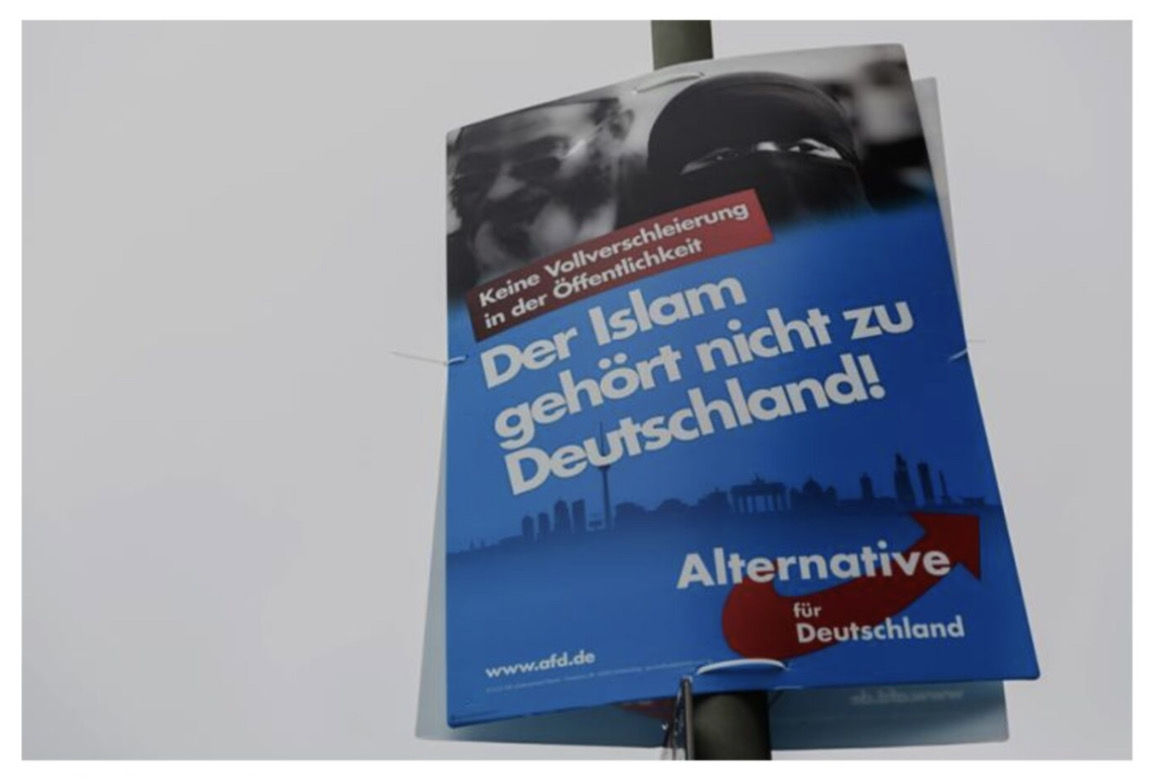Far-right ideology is resurging in Germany at levels not seen since World War II, signalling a political shift that is completely surprising yet at the same time makes all too much sense.
The rise of the far-right party Alternative for Germany (AfD) has seemingly come out of nowhere, as the party won a “historic” election in the eastern state Thuringia. And historic it was. This marks the first win for a far-right political party in Germany since 1945, with AfD’s victory coinciding with the 85th anniversary of the beginning of the Second World War.
But how did we get here? Anyone familiar with German culture understands that the country largely exists within a culture of shame, a shared collective guilt among the German people over the atrocities committed by the Nazis during the Holocaust. In Karl Jaspers’ 1947 book The Question of German Guilt, the philosopher argued that national guilt would be necessary for the reformation of Germany after the war.
Yet, with almost a century separating the modern world from the beginning of the war, we must begin to wonder if this longtime shame — along with new generations of Germans never having experienced the war themselves — has resulted in an eventual desire for philosophical retaliation.
This would draw a parallel to one of Adolf Hitler’s motivations behind World War II. After the end of the First World War, Germany was left in a state of bitterness over the Treaty of Versailles, which imposed reparation payments on the country and limitations on their military. The building anger amongst the German people gave rise to far-right political parties such as the Nazi Party, who promised to rebuild Germany’s image after their humiliating defeat.
Fast-forward to modern day, and Björn Höcke, the AfD’s state leader in Thuringia, seems to feel similarly about his country’s shameful past.
“Germans are the only people in the world who plant a monument of shame in the heart of [their] capital,” Höcke said to supporters in Dresden, referring to the Memorial to the Murdered Jews of Europe located in Berlin. Höcke described Germans as “brutally defeated people” and said the country needs a “180-degree turnaround” on the way it remembers its past.
Höcke’s words echo a feeling reminiscent of the German people immediately after the First World War: one of bitterness at the way his country recognizes their past and resentment toward the weakness he sees in this approach. It’s likely that he, too, would take issue with the economic pressure placed on Germany by the Treaty of Versailles, but that’s not the problem here. This resentment (both after the First World War and in modern day) seems to be part of a reactionary movement borne of a culture of shame.
Höcke, a former history teacher, was fined €13,000 after he used the Nazi slogan “Alles fur Deutschland” (“Everything for Germany”) during a 2021 rally. The phrase, along with the Nazi salute, is illegal in Germany today — an exact representation of the shame that Höcke so deeply loathes.
While the AfD hasn’t progressed to genocidal ideas similar to those of the Nazis, their policies already sow the seeds of division and hatred toward other races and cultures. This is easily observable in a series of ads run by the party in advance of Germany’s 2017 election, with some particularly standout taglines reading “Burkas? We prefer bikinis;” “New Germans? We’ll make them ourselves;” and “Islam? Doesn’t fit in with our cuisine,” with the latter ad featuring a baby pig in reference to observant Muslims not eating pork.
The rise of AfD and political figures like Höcke are causing unrest amongst the German people. The party seems especially popular across eastern Germany, with the party performing much better in eastern state parliamentary elections. This signals an unexpected return to the division between the two halves of the country, which were separated by the Berlin Wall until its collapse in 1989.
Indeed, the rise of AfD not only allows us to see a glimpse of the division that once plagued Germany, but their increasingly popular hatred is a concerning step backward for a country which has spent the last 79 years proving it has learned from its mistakes.
As many German citizens continue to oppose the far-right party, it appears unlikely that they will win the federal election, especially since other prominent parties are strictly opposed to cooperating with them. Even if a federal victory is not in their near future, however, the AfD’s mainstream rise within the country is a sign that hatred is perhaps never fully vanquished — like a bad rash, it will continue returning again and again.

